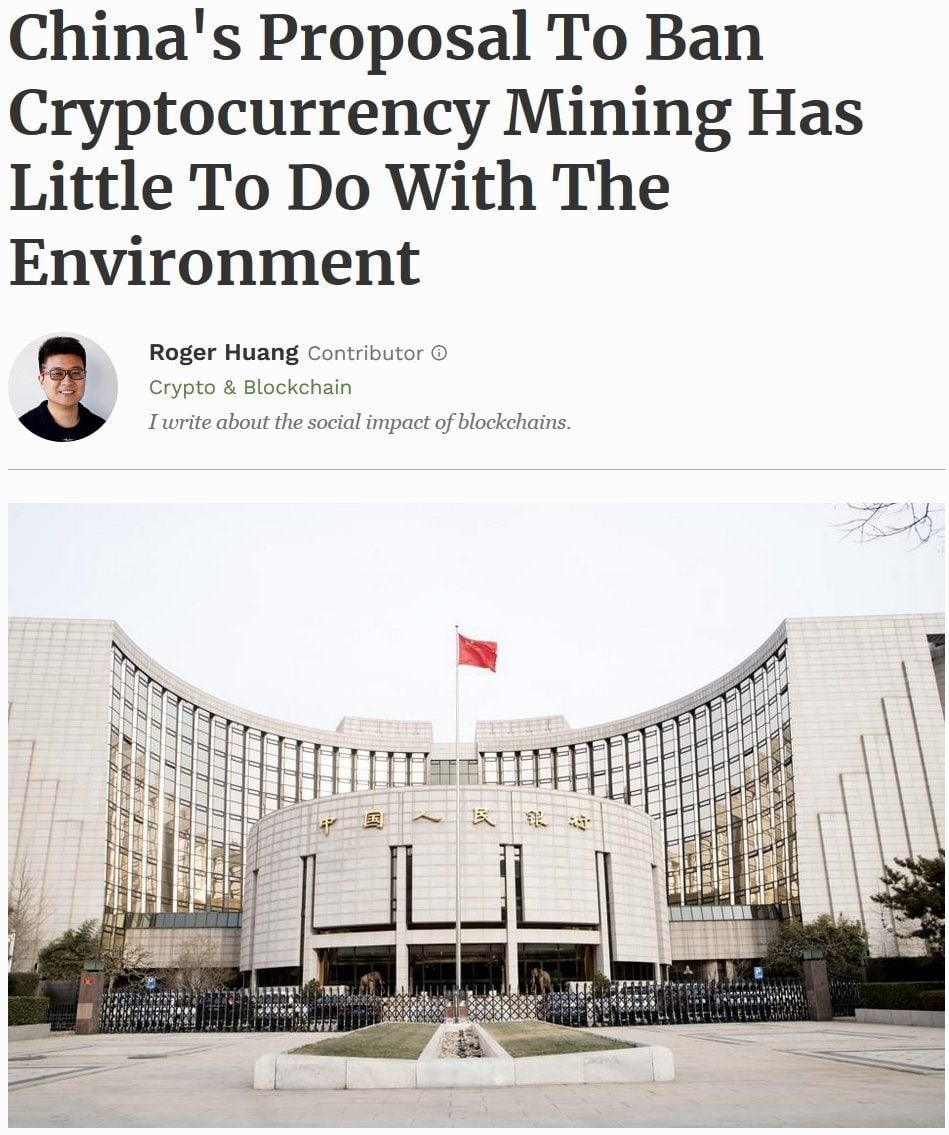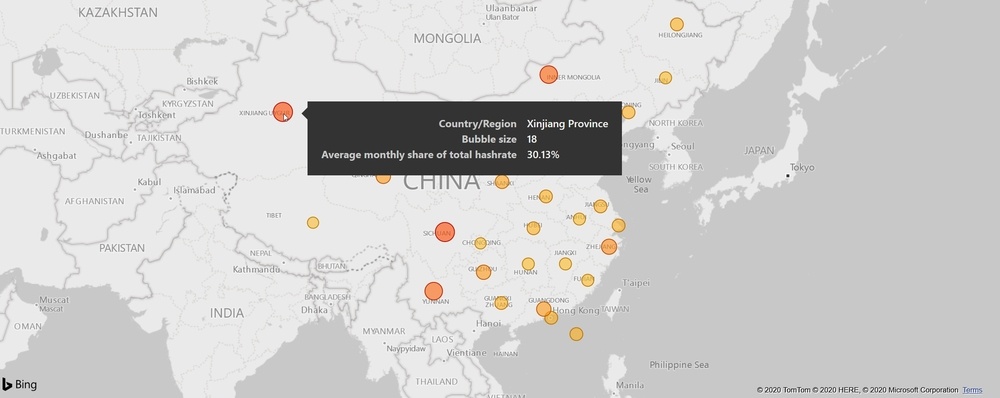Buy Crypto & Bitcoin in China
We may receive advertising compensation when you click certain products. Before jumping into this page, an important disclosure.
Coinmama allows customers in almost every country to buy bitcoin. They charge a 4.9%-5.9% (depends on volume) fee on each purchase.
Customers in Europe can also purchase bitcoins with SEPA transfer for a lower fee.
Want to buy using Coinmama? This step-by-step guide will show you how to use Coinmama.
- Works in almost all countries
- Highest limits for buying bitcoins with a credit card
- Reliable and trusted broker
- Some of the highest fees among credit/debit card bitcoin brokers
Paybis is a popular cryptocurrency exchange. They serve 180 countries and 48 US states and are registered with FinCEN, making them a more trusted, regulated exchange. Paybis offers incredibly high limits and super fast payouts, not to mention 5 minute ID verification and nearly perfect review scores on Trustpilot.
- 24/7 live support
- Extremily high limits
- 5 Minute verification
- Get payouts fast
- Large selection of payment methods
- No traditional orderbook for advanced traders
CEX.io lets you buy bitcoin with a credit card, ACH bank transfer, SEPA transfer, cash, or AstroPay. Purchases made with a credit card give you access to your bitcoin immediately. CEX.io works in the United States, Europe, and certain countries in South America.
- Support for many countries and regions
- Low 0.2% trading fee
- Established and trusted exchange
- Verification process is extensive, requiring much personal information (including a photo) and incurring a long delay
- GBP market lacks liquidity
BTCC is China’s second largest Bitcoin exchange and the longest-running Bitcoin exchange in the world. You can fund your exchange account online via bank transfer.
- BTCC has great liquidity and good prices
- Bank deposits are processed within 30 minutes of confirmation
- Not private since identity verification is required
- Interface may be confusing for first-time buyers
- Limited payment methods; only bank transfer
- Bank transfers not originating from China Merchants Bank may be delayed outside regular banking times
OKCoin is the largest Bitcoin exchange in China. Customers can make deposits to their exchange accounts via bank transfer.
- OKCoin has great liquidity and good prices
- Wechat integration
- Offers USD as well as CNY trading
- Not private since identity verification is required
- Interface may be confusing for first-time buyers
- Limited payment methods; only bank transfer
Huobi is the third largest Bitcoin exchange in China. You can fund your exchange account online via CNY bank transfer or with USD via OKPay (1.5% fee) or international wire transfer (1% fee).
- Huobi has great liquidity and good prices
- Always-available, bilingual customer support
- Offers USD as well as CNY trading
- Not private since identity verification is required
- Interface may be confusing for first-time buyers
- Limited payment methods; only bank transfer
You can use our Bitcoin ATM map to buy bitcoins with cash. Bitcoin ATMs can be a quick and easy way to buy bitcoins and they’re also private. That convenience and privacy, however, comes with a price; most ATMs have fees of 5-10%.
- Our map makes it super easy to find a Bitcoin ATM near you
- Bitcoin ATMs often have 5-10% fees per purchase
Hong Kong-based Bitfinex has long been one of the largest USD Bitcoin exchanges in the world. Bitfinex accounts may be funded by bank wire only, their fee on accepting such transfers is low at only 0.1%.
In August 2016, however, it was hacked and lost around 30% of its users funds. While Bitfinex can be helpful for buying large amounts of bitcoins, it is probably best to not use the exchange until it fully compensates affected users.
- Very low fees even for low volume buyers; 0.1% for market makers and 0.2% for market takers
- One of the best ways to buy large amounts of bitcoins
- Allows lending of fiat or bitcoin to margin traders at interest (but this is risky in light of the hack)
- Very deep liquidity promotes a price close to fair market rate
- Supports several altcoins
- Was recently hacked and has yet to fully compensate all users for their loss
- Geared towards traders; possibly quite confusing for first time buyers
- Single payment option
Chapter 1
Bitcoin & Cryptocurrency Trading in China
The history of Bitcoin in China is a turbulent one.
China was one of the earliest countries to enthusiastically adopt Bitcoin and crypto. In 2013, a Chinese charity began accepting donations in Bitcoin. Soon enough, a flood of businesses began accepting Bitcoin and other cryptocurrencies as payment. Baidu — the Chinese search engine giant — was for a period accepting Bitcoin for its website security service offerings. In fact, in 2014 Bitcoin traded more against the Chinese yuan than any other currency.
This buzz of activity attracted miners, who set up shop in areas with cheap energy. Xinjiang province — home of the Uyghurs — alone provides roughly 35% of Bitcoin’s total hash rate.
Take a look at the Mining in China section below to understand the factors that have allowed Chinese miners to claim over 65% of the hash rate.
One major driver of Bitcoin’s popularity in China is the widespread desire to remove their capital from the control of the CCP and integrate it into the worldwide economy. Wealthy Chinese people are highly motivated to seek out overseas investment opportunities and means of exchanging their Yuan (CNY) for U.S. dollars and other «safe» currencies. The yuan is subject to strict capital controls which make moving money in and out of the country difficult.
China has not taken a favorable view of Bitcoin. In 2017, the Chinese government instated an official ban on all cryptocurrency trading and investing, which was followed the next year by a proclamation that all crypto-related WeChat and social media profiles would be shut down. Bitcoin mining was strongly discouraged if not quite outlawed entirely. This was done with the stated goal of protecting investors from dangerously speculative trading products and scams like PlusToken (more on that below).

This is part of the broader «blockchain, not Bitcoin» appraoch that the Chinese state has taken. It seems that the government sees value in blockchain technology, and indeed may be the first to issue their own Central Bank Digital Currency (CBDC), but views Bitcoin as an anti-estbalishment threat. China’s recent trials of a CBDC are at a more advanced stage than any other country’s. China clearly sees value in blockchain technology and is aiming to be at the vanguard of its development.
Delivering an immediate boost to the Chinese Bitcoin community (and BTC’s price as well), in October 2019 President XI Jinping issued a statement in support of blockchain technology research. One blockchain developer whose family had urged him to quit after the rumblings and ICO ban in 2017 said that he was relieved to «no longer feel on tenterhooks when coding.»
So does this mean that crypto has entered a new phase in China?
Not quite yet. According to Changelly’s roundup of Bitcoin in China, «Bitcoin and other international decentralized cryptocurrencies are illegal to store and trade for individuals and any corporate entities.» This is the letter of the law, though it is not always strictly enforced. Many people decide to take the risk and use VPNs to bypass restrictions and utilize foreign exchanges.
Yet sometimes government intervention can have an opposite effect to the one desired. Mainland China’s tightening of its grip on Hong Kong has caused many residents to turn to crypto in order to safeguard their money. Hong Kong residents are increasingly turning to Bitcoin and stablecoins in an effort to preserve their wealth in light of the newly imposed capital controls by Beijing.

Roughly 20% of capital flows into Bitcoin, with the rest going into stablecoins, mostly Tether (USDT).
While the lives of miners may be difficult, local exchanges are forced to comply with last-minute regulations, and individuals have to take into account the legal gray area in which they operate, there is undeniable interest and engagement with Bitcoin in China.
Since 2009, Bitcoin has provided an increasingly viable alternative to the fiat currency system, and as long as there that system continues to be suveilled and controlled by third-parties, there will be demand for decentralized alternatives.
Источник
Bitcoin falls further as China cracks down on crypto-currencies
The price of Bitcoin fell below $34,000 (ВЈ24,030) for the first time in three months on Wednesday, after China imposed fresh curbs on crypto-currencies.
Beijing banned banks and payment firms from providing services related to crypto-currency transactions.
It also warned investors against speculative crypto trading on Tuesday.
It follows falls in Bitcoin of more than 10% last week after Tesla said it would no longer accept the currency.
On Wednesday afternoon, Bitcoin recovered some ground, although it was still down -10.4% at $38,131.
Meanwhile, other digital currencies such as Ether, which acts as the fuel for the Ethereum blockchain network, and Dogecoin lost as much as 22% and 24% respectively.
At the same time, Tesla shares fell more than 3% on Wall Street, possibly because of the electric carmaker’s exposure to Bitcoin.
The firm, owned by Elon Musk, still holds around $1.5bn worth of the crypto-currency.
Beijing cracks down
Crypto-currency trading has been illegal in China since 2019 in order to curb money-laundering. But people are still able to trade in currencies such as Bitcoin online, which has concerned Beijing.
On Tuesday, three state-backed organisations, including the National Internet Finance Association of China, the China Banking Association and the Payment and Clearing Association of China issued a warning on social media.
They said consumers would have no protection if they were to incur any losses from crypto-currency investment transactions.
They added that recent wild swings in crypto-currency prices «seriously violate people’s asset safety» and are disrupting the «normal economic and financial order».
Neil Wilson of Markets.com said: «China has for some time been putting pressure on the crypto space, but this marks an intensification — other countries might follow now as central banks make strides towards their own digital currencies.
«Until now, Western regulators have been pretty relaxed about Bitcoin, but this might change soon.»
Tesla snub
In March, Tesla boss Elon Musk announced unexpectedly that the electric carmaker would allow customers to buy cars using Bitcoin.
But last week, he did a U-turn and suspended vehicle purchases using Bitcoin because of environmental concerns.
His fears centre on Bitcoin mining — the energy-intensive process through which the digital currency is generated, using high-powered computers. It often relies on electricity generated with fossil fuels, particularly coal.
«We are concerned about rapidly increasing use of fossil fuels for Bitcoin mining and transactions, especially coal, which has the worst emissions of any fuel,» Mr Musk wrote.
«Cryptocurrency is a good idea. but this cannot come at great cost to the environment.»
He said the electric carmaker did not intend to sell any of its Bitcoin and intended to reinstate crypto-currency transactions once mining shifted to using more sustainable energy sources.
Although the digital currency cannot be traded in China, more than 75% of Bitcoin mining around the world is done in China.
For anyone who has followed the crypto-currency scene for a while, the events of recent weeks are a familiar story.
Some random event — say, a tweet from Elon Musk announcing Tesla will accept crypto-currency payments — sends Bitcoin to new highs, and people begin to say it’s winning mainstream acceptance.
Then another random event happens, perhaps a change of course from the Tesla tycoon. It comes tumbling down again, and talk of it going mainstream fades into the background.
Last month, in a chatroom on Clubhouse (another phenomenon that seems to be swinging from boom to bust) I expressed some scepticism about crypto-currencies.
Up popped a senior figure from London’s thriving fintech scene: «Rory, Rory,» he chided me, «crypto is becoming an accepted asset class.»
With big City institutions taking an interest, that had a ring of truth — back in April, at least.
But this week, the weather had changed, with the Financial Times reporting «new doubts among institutional fund managers over the future of crypto-currencies as an asset class».
My mind went back to 2013, when I had first taken an interest in Bitcoin. In a report for Radio 4’s PM programme, I had bought a pizza for 0.5 BTC, a tortuous process which had not seemed worth the ВЈ30 it cost back then — of course, at today’s exchange rate, that was a ВЈ14,000 pizza.
I had also written a blog post headlined «The Bitcoin Bubble», in which I tried to mine some lessons from a period when the price of the cryptocurrency shot up from $15 to $276 and then hurtled lower again.
I ended a piece in which I compared the cryptocurrency with 17th-Century Dutch tulips or London houses in the 1980s with this thought: «Unless and until Bitcoin can be used to buy a sandwich, or be accepted by your friends when you pay them back for a restaurant meal, then it is likely to remain just a playground for geeks and gamblers.»
Eight years on, it is still virtually impossible to buy a sandwich with Bitcoin.
And why would you want to, when there’s a good chance you’ll be mocked a few years later — as I’ve been for my transaction — for giving away an asset that goes on to soar in value?
Источник


